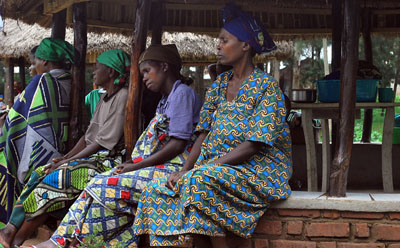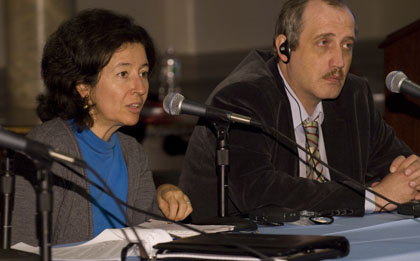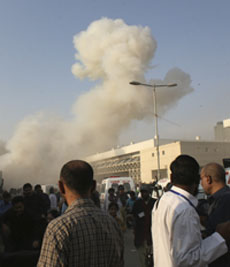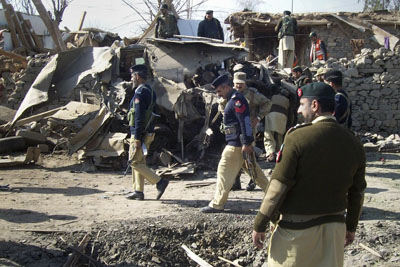
Honoring local journalists on World Press Freedom Day
Today, May 3, is World Press Freedom Day. But on this day, this year, I am not thinking about the dangers for the many journalists whose bylines I’ve come to associate with places like Mogadishu or Manila, Kabul or Islamabad. It’s not because I don’t have immense respect for them and for the risks they…
Taliban threats, abducted journalists in Pakistan
Over the last few days, several papers in Pakistan reported that a Taliban organization in North Waziristan gave a “last warning” to Pakistani media. The story was widely reported, quoting an e-mail message from Muhammad Umar, a “spokesman for the Taliban Media Center,” the papers said. The group is angry about the way it is being portrayed on Pakistani…

Impunity Summit: Solidarity in fighting journalist murders
Every day at CPJ, we count numbers: 18 journalists killed in Russia since 2000, 32 journalists and media workers slaughtered in the Maguindanao massacre, 88 journalists murdered over the last 10 years in Iraq. But on Tuesday night at CPJ’s Impunity Summit at Columbia University, CPJ Executive Director Joel Simon clarified why we were gathered:…
Protective bylines, and why they’re necessary
I’ve been writing a lot recently about the urgent need to protect journalists in Afghanistan and Pakistan (a string of links is at the bottom of this entry). While neither country has become as dangerous as, say, Iraq at the height of the conflict, conditions are getting more dangerous for reporters. And very often, it…

An update on the Karachi double bombing
On February 5, I blogged about three vicious bomb blasts in Pakistan in the previous two days—“one in Lower Dir that wounded three reporters on Thursday, and Friday’s double attack in Karachi that we’re still investigating.” I argued that media companies in Pakistan must start taking responsibility for protecting their employees in the field. I had…

Time to step up protection for media in Pakistan
Three vicious bomb blasts in Pakistan in the last two days—one in Lower Dir that wounded three reporters on Thursday, and Friday’s double attack in Karachi that we’re still investigating—highlight just how dangerous it has become for journalists, particularly TV camera crews and photographers, but certainly any journalist assigned to cover a public event or…
TV coverage guidelines drawn in Pakistan as violence rises
In November 2009, I received this e-mail message from a few people in Pakistan:TOP NEWS MANAGERS AGREE ON TV COVERAGE GUIDELINESISLAMABAD—Top news managers from Pakistan’s eight television channels have evolved a first-of-its-kind voluntary framework to standardize professional guidelines governing terrorism coverage. [A PDF of November’s message is here.]Since then there hasn’t been much more news about the issue,…
Doubling down on playing the spy card
Another foreign journalist was “outed” in Pakistan on Friday. A front-page story in the November 20 edition of the daily newspaper The Nation ran the picture of an unidentified journalist at the scene of a bomb blast in Peshawar, identifying him as a CIA spy. He was actually Daniel Berehulak, who works for the international photography…
International press decries attack on Rosenberg
Twenty-one international news editors have signed on to a letter to the Pakistan government today. It was addressed to Minister for Information and Broadcasting Qamar Zaman Kaira and was drafted by Islamabad’s foreign correspondent community. They were concerned about an article that appeared in Pakistan’s The Nation daily on November 5 accusing Wall Street Journal…
Playing the spy card against WSJ in Pakistan
Last Thursday, Pakistan’s The Nation newspaper published a reckless and unsubstantiated story accusing Wall Street Journal South Asia correspondent Matthew Rosenberg of being a spy. It’s an accusation that gravely endangers Rosenberg’s safety. Wall Street Journal Managing Editor Robert Thomson responded with a scathing letter to The Nation’s editor, Shireen Mazari, expressing his disgust at the publication…